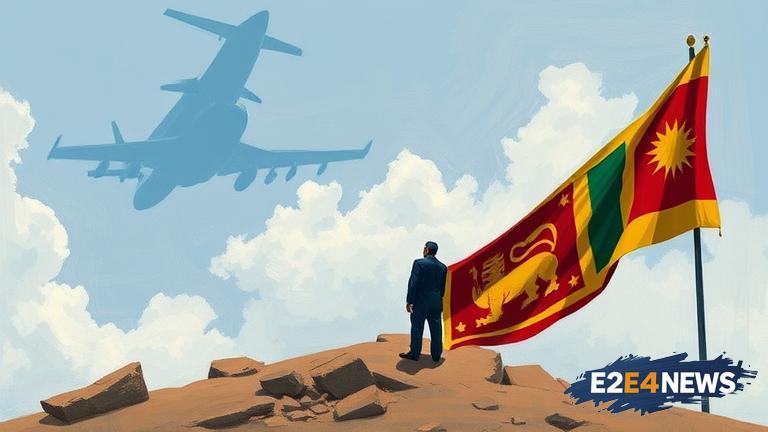Sri Lanka’s foreign policy has been a subject of controversy in recent years, with the country’s leaders facing criticism for their handling of international relations. The country’s mission to the United Nations, in particular, has been tainted with hypocrisy, with Sri Lankan diplomats making statements that contradict the country’s actions. For instance, Sri Lanka has been a vocal critic of human rights abuses in other countries, yet it has been accused of committing similar abuses within its own borders. The country’s leaders have also been accused of making contradictory statements, with some officials calling for greater international cooperation while others have taken a more isolationist stance. Furthermore, Sri Lanka’s foreign policy has been influenced by its relationships with other countries, particularly India and China. The country has sought to balance its relationships with these two regional powers, while also maintaining good relations with the United States and other Western countries. However, this balancing act has been difficult to maintain, and Sri Lanka has faced criticism for its handling of sensitive issues such as human rights and trade. In addition, the country’s foreign policy has been shaped by its history, with the legacy of colonialism and the civil war continuing to influence its relationships with other countries. The country’s leaders have also been accused of using foreign policy as a tool for domestic political gain, rather than prioritizing the country’s long-term interests. Despite these challenges, Sri Lanka has made efforts to engage with the international community, including through its participation in regional organizations such as the South Asian Association for Regional Cooperation (SAARC). However, the country’s foreign policy remains a subject of controversy, with many critics arguing that it is driven by short-term political considerations rather than a long-term vision for the country’s development. The country’s leaders must prioritize a more consistent and principled approach to foreign policy, one that takes into account the country’s own interests and values, as well as its responsibilities to the international community. This will require a more nuanced understanding of the complex geopolitical landscape, as well as a willingness to engage in difficult diplomacy and make tough decisions. Ultimately, Sri Lanka’s foreign policy must be guided by a commitment to promoting peace, stability, and prosperity, both within the country and throughout the region. The country’s leaders must also be willing to listen to criticism and learn from their mistakes, rather than simply ignoring or dismissing the concerns of others. By taking a more principled and consistent approach to foreign policy, Sri Lanka can build trust with the international community and promote a more positive image of the country abroad. However, this will require a fundamental shift in the country’s approach to foreign policy, one that prioritizes long-term interests and values over short-term political gain. The country’s leaders must also be willing to work with other countries and international organizations to address common challenges and promote regional cooperation. This will require a more collaborative and cooperative approach to foreign policy, one that recognizes the interconnectedness of the world and the need for collective action to address global challenges. In conclusion, Sri Lanka’s foreign policy is at a crossroads, with the country facing a choice between a more principled and consistent approach, or a continuation of the current hypocritical and contradictory approach. The country’s leaders must prioritize the long-term interests of the country and its people, rather than short-term political gain, and work towards building a more positive and constructive relationship with the international community.
